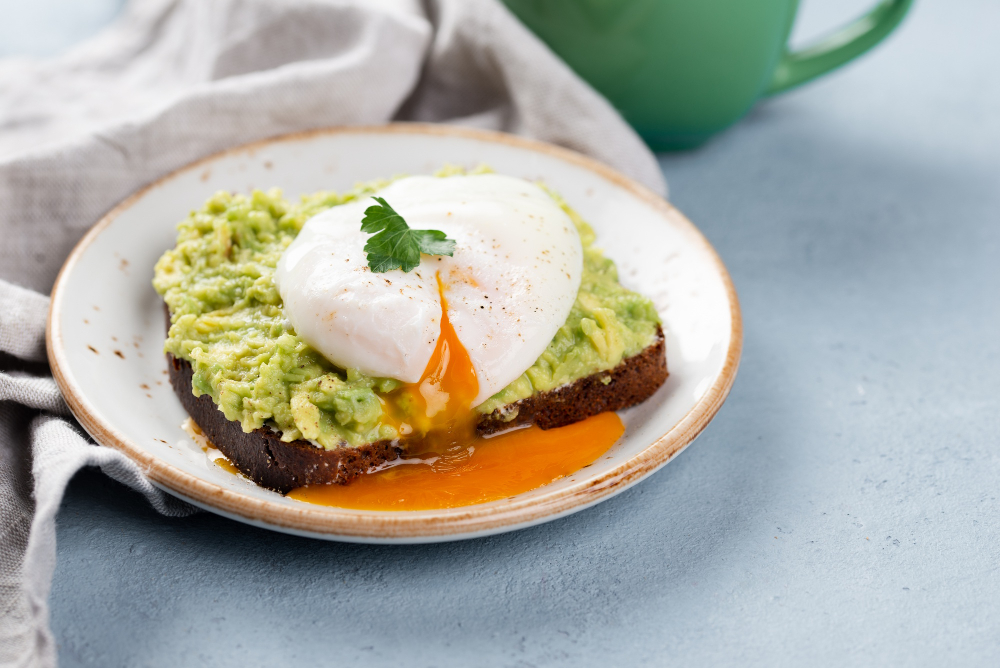If you’ve ever wondered why some people seem to eat anything and stay slim, while others gain weight just looking at a cookie, you’ve probably thought about how to boost metabolism. And you’re right — metabolism plays a big role in how your body uses energy, stores fat, and feels throughout the day. The good news? You’re not stuck with the metabolism you were born with. There are simple, natural ways to give it a gentle boost.
In this article, we’re going to talk about how metabolism works, what can slow it down, and how you can support it with small, daily habits that are easy to stick with and really help boost metabolism — no extreme diets, no magic pills, just a better understanding of your body and the fuel it really needs.
What Is Metabolism, Really?
At its core, metabolism is the process your body uses to convert the food you eat into energy. Even when you’re resting, your body needs energy to keep your heart beating, your lungs working, and your brain active. This is called your basal metabolic rate — the minimum energy your body needs to stay alive.
Your metabolism is influenced by a few main factors:
- Your age
- Your body composition
- Your activity level
- Your genetics
While you can’t control all of these, there’s still a lot you can do to support a healthier, more efficient metabolism.
Why Your Metabolism Might Be Sluggish
Feeling tired, gaining weight easily, or struggling with cravings could be signs your metabolism isn’t working as efficiently as it could. Several things can slow it down, including long periods of sitting, not eating enough, poor sleep, dehydration, or high levels of stress.

In fact, many people accidentally slow their own metabolism by skipping meals, relying on sugary snacks, or doing the same workouts over and over again. It’s not about doing more — it’s about doing better, with smarter choices that align with how your body actually works.
Natural Ways to Boost Metabolism
Let’s start with something simple: your meals. What you eat, how often you eat, and even how much water you drink can influence your metabolism.
Eating enough protein throughout the day, for example, gives your metabolism a nice little lift. That’s because protein has a higher “thermic effect” — your body burns more calories digesting it compared to fats or carbs. Plus, protein helps maintain lean muscle mass, which is one of your metabolism’s best allies.
Staying hydrated is another quiet powerhouse. Even mild dehydration can slow your metabolic rate. Drinking water — especially before meals — not only helps digestion, but also increases energy expenditure slightly, especially if the water is cold (your body warms it up, using energy in the process).
Then there’s movement. You don’t have to run marathons to see results. Actually, adding short bursts of activity throughout your day — walking, stretching, using stairs instead of the elevator — can make a big difference. Even standing up more often helps. Your metabolism likes motion.
And yes, sleep matters — a lot. Lack of sleep can affect hormones that regulate hunger and fat storage. If you’ve ever felt hungrier after a bad night of sleep, that’s not your imagination. Prioritizing rest is one of the most underrated ways to improve your overall energy and burn more efficiently.
Let’s Talk About Food
There are certain foods that naturally support metabolism without needing to track every bite. These include:
- Foods high in protein: like eggs, tofu, legumes, and lean meats
- Spices like chili, ginger, and cinnamon
- Green tea and black coffee
- Whole foods with fiber, which support gut health and digestion
If you’re interested in learning more about how eating a plant-based diet packed with nutrient-rich foods can further boost your metabolism and overall health, check out my detailed article on Plant-Based Diet: Benefits, Myths, and Easy Ways to Get Started.

The goal here isn’t to follow a strict meal plan, but to build meals around these ingredients and notice how your body responds. A breakfast with protein and fiber will carry you longer than one full of sugar. Lunch with a kick of spice or ginger might leave you feeling more alert. Small changes, big difference.
Mindset Shifts to Boost Metabolism
Sometimes boosting your metabolism isn’t about eating more kale or drinking more tea — it’s about changing how you approach your day.
For example, stress is a silent metabolism-slower. When you’re constantly in fight-or-flight mode, your body holds on to energy instead of burning it efficiently. Taking time to breathe deeply, enjoy your meals, and move in ways you actually enjoy can calm your nervous system — and yes, support your metabolism.
If you want to dive deeper into how tuning into your body’s signals and eating with intention can make a big difference, check out my article on Mindful Eating: Start Eating Healthy Today and Nourish Your Body with Intention.
And let’s not forget joy. When you’re eating food you like, moving your body in ways that feel good, and getting enough rest, your body wants to work well for you. It’s easier to stay consistent with healthy habits when you’re not forcing them.
Common Myths About Metabolism — And What to Ignore
There’s a lot of misinformation out there. You might’ve heard that eating every 2 hours “keeps your metabolism going” — not really true. What matters more is the total amount of nutrients you get throughout the day, and how your body processes them.
Another myth? That you can’t improve your metabolism after a certain age. While it’s true that metabolism tends to slow down a bit as we get older, it doesn’t shut off — and with the right habits, it can remain strong and steady well into later years.
Supplements that promise to “melt fat” instantly? Be careful. Most of them either don’t work, or they come with side effects that just aren’t worth it. If you’re going to spend money, spend it on real food, movement, and rest — the things that actually make a difference.
It’s About Building Momentum, Not Perfection
You don’t need a perfect meal plan or a gym membership to start feeling better. Sometimes, all it takes is drinking more water today than yesterday. Adding a little more protein to lunch. Getting outside for a walk. Turning off screens earlier and going to bed a bit sooner.
These may not sound groundbreaking, but they are. Your metabolism responds to patterns — not quick fixes. What you do consistently is what your body learns to rely on.
And the best part? Once you start supporting your body in this way, you begin to feel better. That feeling becomes its own motivation.

Let’s Keep This Conversation Going
Metabolism isn’t just a number or a science term — it’s your body’s energy system, and it deserves care. Whether you’re just getting started or looking to refine your habits, remember that transforming your routines doesn’t have to feel overwhelming. What’s helped you feel more energized during the day? Have you tried changing your meals, sleeping better, or moving more often? I’d love to hear your experience. Drop a comment below and let’s share ideas — maybe your story will inspire someone else too.
Sources
Harvard Health Publishing – Explains how protein intake boosts metabolism due to the thermic effect of food, and emphasizes the importance of muscle mass for maintaining a healthy metabolic rate.
https://www.health.harvard.edu/staying-healthy/the-truth-about-metabolism
Health.com – Details how increasing protein intake can naturally aid weight loss by boosting metabolism, increasing satiety, and preserving lean muscle mass.
https://www.health.com/protein-for-weight-loss-11726979
Cleveland Clinic – Discusses how chronic stress negatively impacts metabolism by raising cortisol levels, which can lower metabolic rate and increase cravings for high-fat, high-sugar foods.
https://health.clevelandclinic.org/stress-and-weight-gain





